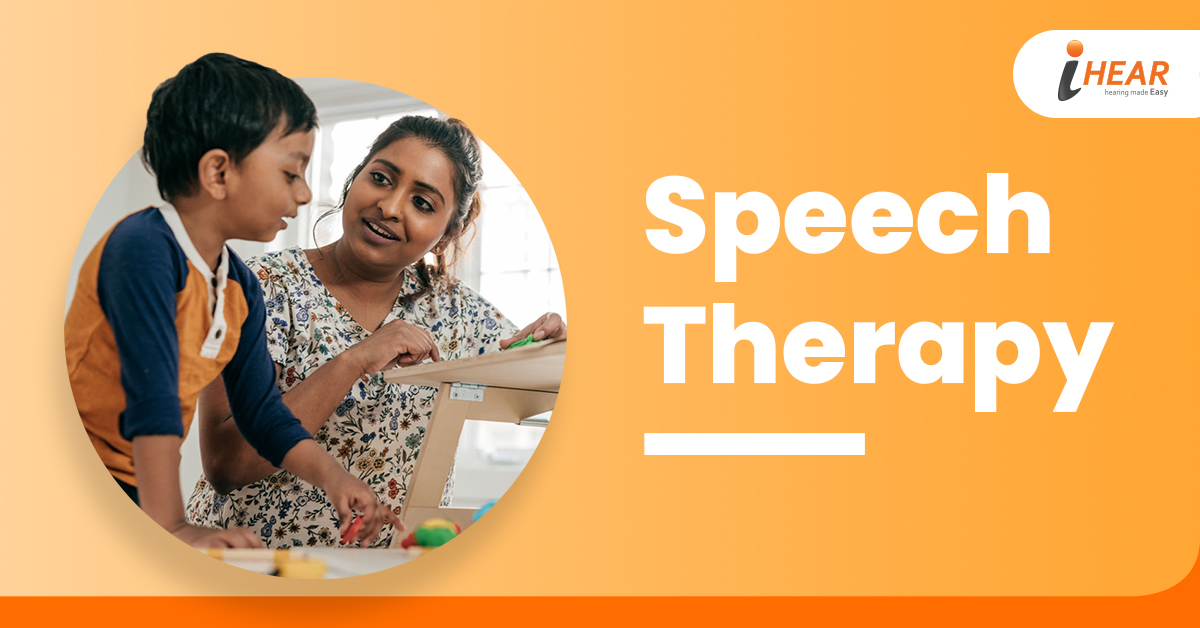Speech Therapy
‘The most important thing in communication is to hear what isn’t being said.’
As said by Ralph Waldo Emerson, “Speech is power, speech is to persuade, to convert, to compel.”
Speech therapy is an interposing service that helps improve a child’s speech and his abilities in order to understand and express language, including nonverbal language. Speech therapists, or speech and language pathologists (SLPs), are the professionals who provide these services.
Speech therapy includes two components:
1) Coordinating the mouth producing sounds to form words and sentences;
2) understanding and expressing language (to address the use of language through written, pictorial body, sign forms, and the use of language through alternative communication systems such as social media, computers, and iPads).
How do we know if a child needs speech therapy?
Some children by birth, may have excellent pronunciation and may even be early readers, but they may need speech therapy to improve their process of using verbal and body language in social situations for everyday purposes (such as making requests, having conversations, and making friends). Children with medical conditions such as a brain injury or an infection that has affected their communication abilities may also need speech therapy. Children suffering from an identifiable disability such as Down’s syndrome needs speech therapy too. These services start at a very tender age continuing up till a child enrols in an institution and starts communicating with the outer world with written language.
How do Speech and Language Pathologists work?
A SLP helps identify a language-based disability in children who faces a tough time reading and expressing themselves through written work. In order to write, children should be able enough to put their ideas into words and then organising those words to form a complete meaningful sentence. Children challenged by language finds it difficult to understand and follow the directions provided. SLP helps build these skills. To provide direct treatment, SLPs perform evaluations and consult with teachers to create language-rich classrooms. Therapy may be performed individually or may include a small group of children who faces similar communication challenges. In both the situations, the goal of a SLP is to make language fun, develop communication skills and friendships, and hence enabling them to excel in their respective fields. Speech therapists do handle speech issues, but they also help kids with other kinds of problems with spoken and written language, such as dyslexia, dyspraxia and auditory processing disorder.
Treating the Nonverbal Child
There are quite a number of children who, for various reasons are unable to speak, needs alternative communication methods. Early intervention and preschool SLPs teach children (and their parents) how pictures and simple sign language enable them to communicate their needs. School-going children may be able enough to use computers or iPads to communicate through text or a voice synthesizer.
The Benefits of Speech Therapy
Speech therapy help kids learn to speak more clearly. This makes them feel more confident and less frustrated about socialising with others of the same age group. Kids suffering from language issues benefits socially, emotionally and academically with the help of speech therapy. For kids with dyslexia (reading issues), speech therapy helps them distinguish and hear specific sounds in words. Speech therapy is especially beneficial for kids beginning early in life. Preschool kids with language issues who went through speech therapy showed distinct improvement in language skills.
Results You Can Expect From Speech Therapy
A child’s work with a SLP may last for months or even for a few years. It depends on your child’s needs. You will see improvement in your child’s issues. The therapist should give you and your child strategies to deal with obstacles more effectively. She will most likely give you activities to practice at home to reinforce the skills your child is learning. Kids who make the most progress through this therapy tend to be those who gets totally involved in their treatment.
It’s important for the speech therapist and your child to be a good match. The speech therapist working with your child should have hands-on experience working with kids having similar issues as that of your child. Speech therapy is just one way to help a child with learning issues related to language and speech.
Key Takeaways
- Remember, Speech therapy isn’t a quick fix. It takes over months of hard work or even years.
- It’s helpful if the speech therapist has previous experience working with kids with your child’s issue.
- Your involvement—like practicing exercises at home, speaking with your child—can make speech therapy more effective.

